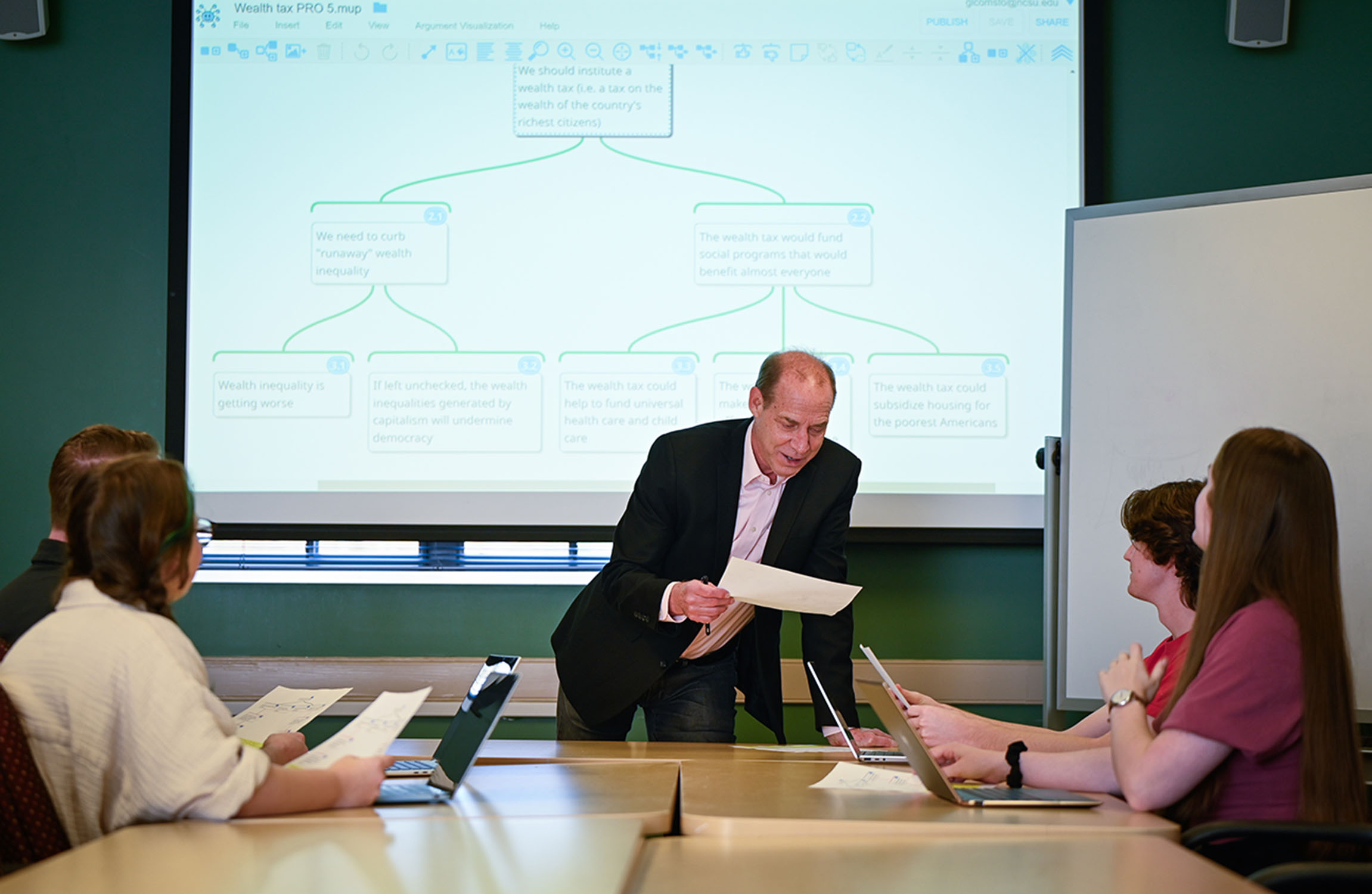Psychology Dept Leads Global Progress in Emerging Field
 A group of volunteers travels to a foreign country to provide aid. But as so often happens, unforeseen problems arise. Maybe the volunteers aren’t a good fit or their skill levels aren’t sufficient for the task at hand. Perhaps there’s a clash of cultural values between those helping and those being helped.
A group of volunteers travels to a foreign country to provide aid. But as so often happens, unforeseen problems arise. Maybe the volunteers aren’t a good fit or their skill levels aren’t sufficient for the task at hand. Perhaps there’s a clash of cultural values between those helping and those being helped.
When such problems arise, they can greatly impede progress. Humanitarian Work Psychology (HWP) is an emerging area of industrial-organizational psychology specifically designed to address work-related issues in just such humanitarian arenas. NC State’s Department of Psychology is helping lead the global development of the field.
 Associate Professor of Psychology Lori Foster Thompson (pictured at left) taught the world’s first HWP graduate courses last summer at the Universities of Bologna and Barcelona. Her students represented a true global community. “My students came from Peru, Brazil, Africa, Italy—all over the globe,” said Thompson in a call from Ireland, where she is conducting work this summer. “We discussed how to apply Work and Organizational Psychology to the humanitarian effort. We covered issues like women’s work opportunities in developing countries, micro-credit enterprises, online volunteerism, and sex slavery, in addition to other topics.”
Associate Professor of Psychology Lori Foster Thompson (pictured at left) taught the world’s first HWP graduate courses last summer at the Universities of Bologna and Barcelona. Her students represented a true global community. “My students came from Peru, Brazil, Africa, Italy—all over the globe,” said Thompson in a call from Ireland, where she is conducting work this summer. “We discussed how to apply Work and Organizational Psychology to the humanitarian effort. We covered issues like women’s work opportunities in developing countries, micro-credit enterprises, online volunteerism, and sex slavery, in addition to other topics.”
Soon after the seminars concluded, Thompson headed to Melbourne, Australia, to attend the 27th International Congress of Applied Psychology, sponsored by the International Association of Applied Psychology (IAAP). There, a division of the IAAP voted unanimously to establish a four-year work group devoted to HWP, which Thompson will lead.
“I’m absolutely excited,” Thompson said. “People are ready to help and want to see our profession expand in this way. We’ve given talks about HWP around the world and we have witnessed a lot of enthusiasm from members of our field—both senior members and newer student members. We’re very encouraged by the reception this is getting.”
Thompson hopes the four-year effort she’s leading can be a workhorse for the Global Task Force for Humanitarian Work Psychology, formally established in 2009 at University College London. Thompson was one of about a dozen who attended that summit.
Her team’s task is to lay the groundwork for progress globally. “Our first challenge is to build a network with the most economically and geographically diverse members we can find,” Thompson said. “We want to hear from representatives of many different countries about how industrial-organizational psychology is best applied in aid situations.”
Alex Gloss is working with Thompson on the global task force, serving as coordinator for capacity-building. Gloss, who is currently studying in New Zealand, will join NC State’s industrial-organizational psychology doctoral program this fall. He’s finding there are still plenty of people who aren’t yet familiar with HWP.
“It’s industrial-organizational psychology with both a pro-social edge and a focus on the world of international development,” he said. “That includes areas you’d traditionally think of like humanitarian aid work and disaster relief and recovery efforts. HWP is also applied to more general non-government organizations and inter-governmental organizations that are involved in helping to improve the well-being of people around the world.”
“We have colleagues who have been doing this independently for decades,” Thompson added, “but we didn’t have a common name or language for it. Now that it’s becoming organized and strategic, we think it can become a more powerful force for good.”
Word is getting out that NC State University is a leader in the field. Applications and inquiries into HWP have increased in the past year. “I think our involvement has the potential to draw new members into industrial-organizational psychology who may not otherwise have pursued this field,” said Thompson. “I’m proud that NC State has been so supportive and encouraging of our work.”
By Christa Gala
- Categories:


